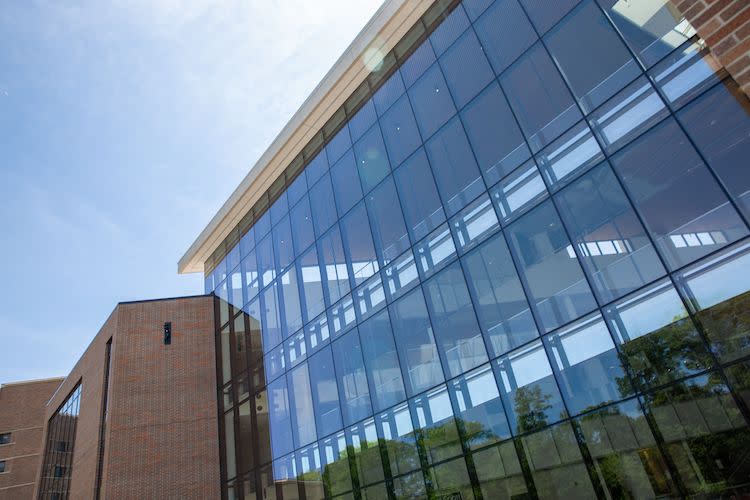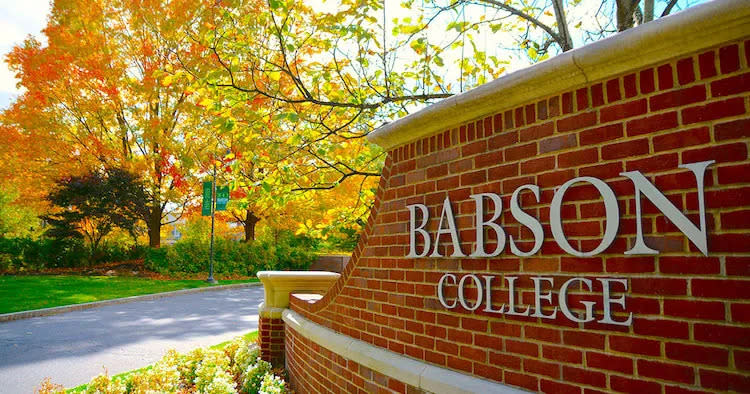
The streaks are alive. Which ones? Take your pick.
The most impressive winning streaks in the U.S. News & World Report ranking of MBA specializations remain intact with the publication of the magazine’s main ranking today (March 29). Yes, the University of Pennsylvania’s Wharton School is once again the top business school in finance. Certainly, Harvard Business School is the best in the country in general management. Indeed, Northwestern University’s Kellogg School of Management is, indisputably and for the record, the reigning monarch of marketing.
But far more than the juggernauts in graduate business education — who actually would rather shed some of their reputations as being top dog in one specific field — smaller schools have a lot riding on their reputations for excellence in one discipline or another. So publication of U.S. News‘ 13 specialization rankings will come as a relief, as much as a joy, to the four B-schools with the most noteworthy winning streaks that they have all kept them alive for another trip around the sun.
4 AMAZING WINNING STREAKS

Babson College’s President Stephen Spinelli Jr.
Using only the results of a survey of deans and program directors, U.S. News ranks these 13 specializations: in the “Quant” disciplines, Accounting, Finance, Information Systems, Production & Operations, Supply Chain, and Business Analytics; and in the “Poets,” Entrepreneurship, International Business, Management, Marketing, Nonprofit, Project Management, and Real Estate. The smallest two rankings are Project Management with 11 places (up from six last year) and Nonprofit, also with 11; the largest are Accounting and Business Analytics, each with 43 schools.
Among the four schools with incredible streaks atop specific specialization rankings, the shortest is now a decade long. Michigan State Broad College of Business, ranked 36th overall, was named the top Supply Chain B-school for the 10th year in a row. The University of Texas-Austin McCombs School of Business, ranked 18th overall, was named the top Accounting school for 16th straight year. Darla Moore School of Business at the University of South Carolina, tied for 47th in the main ranking, was named the leading school in International business for an astonishing 22nd year in a row (and is top three in the category for the 32nd consecutive year).
Most impressively of all, Babson College maintained its Entrepreneurship title, landing the coveted No. 1 for the 29th straight year. Not bad for a school tied for 57th in the overall ranking.
What makes Babson such a startup hotbed? Stephen Spinelli, who took over as president of Babson in July 2019, credited the integration of the school’s “thought and action” approach that emphasizes smart action, failing fast, and pivoting based on what you learned, as well as the school’s focus on interdisciplinary collaboration among its faculty, no matter what discipline they come from.
“It is a purposeful strategy for the business model at Babson,” Spinelli explained in a 2021 interview with Poets&Quants, pointing out that Babson is home to multiple institutes and centers focused on the marriage of thought and action — or the theory and practice to teach students an entrepreneurial mindset.
“That has created this more direct connection between what happens in the classroom and a student’s ability to self-curate their interaction with the marketplace at the same time,” Spinelli said. “Those centers and institutes allow a student to do that with a greater degree of self-curation and freedom. You have to have finance, you have to have accounting, you have to have marketing. You have to have these integrated studies.” Then you can apply those in the different institutes and centers, he says. “That coordination and integration that is really led by the students is probably the single-most innovation that I’ve seen.”
M7: MIT CLEANS UP WITH 4 FIRST-PLACES
The M7, as always, was well represented in the U.S. News specialization rankings, nabbing eight first places this year. Four of those were claimed by one school: MIT Sloan School of Management, which was named the top school for Information Systems, Production & Operations, Business Analytics, and Project Management. MIT also was second in Supply Chain Logistics. MIT and Wharton, you may recall, boycotted last year’s U.S. News ranking, which didn’t harm their standing: Wharton placed second and MIT fifth overall in 2021.
This year, with Wharton sharing the top spot overall and MIT again in fifth (tied with Harvard), both schools also saw improvements in some specializations and stayed put at high levels in others. MIT’s performance was most impressive: In addition to its four first places and one second place, the Sloan School held serve in seven categories, jumped seven places to 17th in International Business, and improved in Management, Info Systems, and Real Estate. It was one of two M7 schools to come closest to running the table with a ranking in every category, missing out on only two: Marketing and Nonprofit. (The other school with rankings in 11 categories was Northwestern Kellogg, which missed out on Info Systems and Project Management.)
Wharton, while repeating as No. 1 in Finance and Real Estate, held serve in two other categories and improved in Accounting and Info Systems, but dropped in Management, Production & Operations, and International Business. One M7 school had a rough outing, for a second year in a row: Stanford Graduate School of Business, which slipped from No. 1 overall into a tie for third with Kellogg, and had no first places in the specializations. Last year, Stanford fell out of four different rankings, dropping from sixth place to unranked in both Information Systems and Business Analytics, from 15th to unranked in International Business, and from second to unranked in Project Management. This year the GSB stayed unranked in all four, as well as Real Estate — the second-most no-ranks after Chicago Booth’s six.
Meanwhile, only one business school was ranked in all 13 categories, and it was the same school as last year: Michigan’s Ross School of Business. The Ross School’s bakers dozen was unique, as was its trio of third-places in Management, Marketing, and Project Management.
THE JESUIT VOTING BLOC PERSISTS
Because the specialization rankings are a popularity contest, strange outcomes are inevitable. There’s really no defending the placement of Washington University in St. Louis’ Olin Business School landing in a three-way tie for last on the Entrepreneurship list; as a reminder, the Olin School has won P&Q‘s entrepreneurship ranking all three years we have published it. Also hard to understand: Northwestern Kellogg slipping seven places in Finance from 11th last year to 18th this year. Or Columbia Business School tying Seattle University’s Albers School of Business and Economics at 20th in Accounting.
That last one is part of a different trend, and the most reliable controversy attached to this annual ranking. Seattle Albers is among a handful of lower-ranked and unranked schools appearing in multiple rankings consistently over the years, despite lacking full-time MBA programs, having small and unheralded programs, and otherwise being well off the map. Albers, unranked in the overall ranking, was not only 20th in Accounting this year but 19th in Finance and 26th in Business Analytics; last year the small school — which offers one-year, part-time, online, and executive MBAs but no full-time, two-year program — was 15th in Accounting, 30th in Finance, and 19th in Analytics.
Among the other low-ranked schools making frequent appearances this year: Loyola University Maryland Sellinger School of Business & Management, which offers only part-time and one-year MBAs but which landed 35th in Accounting, 30th in Management, and 27th in Business Analytics. Loyola Marymount, of Los Angeles, was also unranked but 31st in Business Analytics, 26th in Marketing, and 17th in Entrepreneurship. The Dolan School of Business at Fairfield University in Connecticut is 18th in Marketing, 21st in Analytics, 19th in Finance, and 19th in Accounting. The Chaifetz School of Business at Saint Louis University is 13th in Supply Chain, 12th in Entrepreneurship, and eight in International Business — and has improved in each of those categories since last year.
What do all these schools — and several others like Xavier Williams and Marquette and Gonzaga and Detroit Mercy — have in common? All are Jesuit schools!
Because the whole weight of U.S. News‘ specialization rankings lies in peer assessments, business school deans and directors of accredited MBA programs can — and do — nominate multiple schools for inclusion in each of the specializations. Several unranked schools with a Roman Catholic, Jesuit foundation engage in a yearly bloc-voting effort that succeeds in putting Fairfield, Marquette, Seattle Albers, Loyola Marymount, and others next to elite schools — and frequently ahead of them. No one begrudges these small schools their moment in the sun, but likewise no one really believes that Loyola Sellinger, with around 30 MBA students, is a better program for Business Analytics than Cornell, or Emory, or Foster, or Carlson? Or that Loyola Marymount is superior in Entrepreneurship education than Kellogg, Stern, Columbia, and Washington Olin? Or that Fairfield Dolan is better for Accounting than Columbia? Let it be a reminder to take these rankings with a heaping helping of salt.
Is your school a “Poet” or a “Quant”? See the next pages for breakdowns of the last three years of 13 U.S. News specialty rankings. See the complete main ranking itself here; see Poets&Quants’ coverage here.

Michigan State Broad is once again the top Supply Chain school, according to U.S. News

Babson College is the top B-school for Entrepreneurship, according to U.S. News. That makes 22 years in a row for the Massachusetts school
DON’T MISS THE TOP ONE-YEAR MBA PROGRAMS IN THE U.S. and LAST YEAR’S STORY ON THE U.S. NEWS SPECIALIZATION RANKINGS
The post How U.S. News Ranks The Top 50 B-Schools By MBA Specialization appeared first on Poets&Quants.






